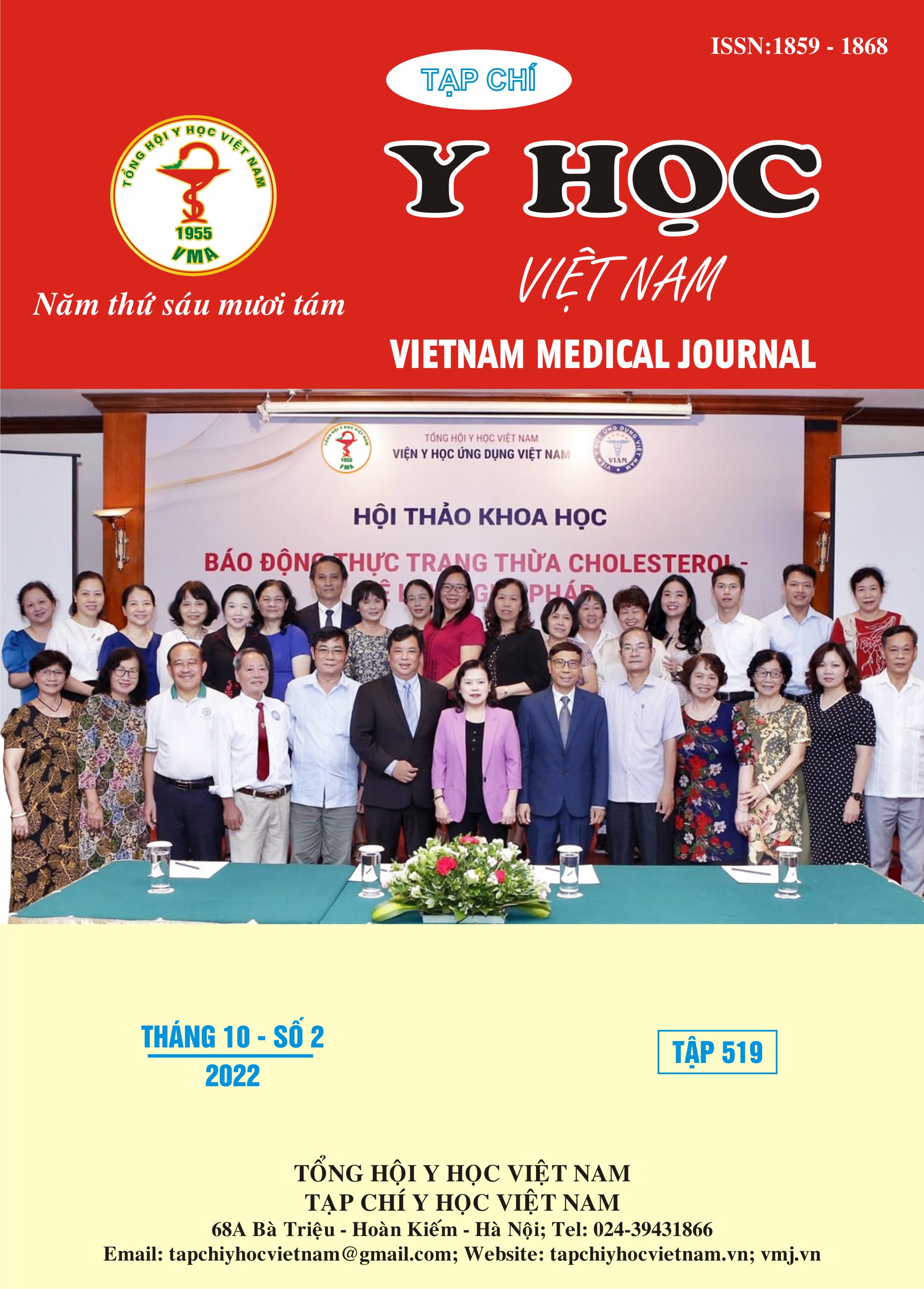CLINICAL DESCRIPTION OF COGNITIVE DYSFUNCTION IN PATIENTS WITH SCHIZOAFFECTIVE DISORDER
Main Article Content
Abstract
We performed a study with the objective of clinical description of cognitive dysfunction in patients with schizoaffective disorder (SAD) inpatient treated at the Central Psychiatric Hospital I by descriptive cross-sectional study of 61 inpatients with ICD-10 diagnosis of SAD (F25). The results showed that: The average age of the study group was 38±12.1; The rate of male is 68.9% and female is 31.1%. Percentage of cognitive disorders: 59.02%; the rate of memory disorder is 63.9%; attention disorder was 44.3% and executive dysfunction was 62.3%. In attention dysfunction, the rate of alternating attention disorder is the highest with 86.1%, followed by 52.8% sustained attention and 41.7% patients with reduced focus attention. Memory function with delayed recall is disordered with 83.3%, visual memory disorder is 72.2%, immediate memory is 66.7%, verbal memory is 50%. Regarding to executive function, psychomotor speed decreased up to 83.3%, then planning ability 80.6% and visual construction ability 75%, organizing work 69.4%; problem-solving ability, fluency accounted for 63.9% and 61.1% respectively; Computational ability and language are at about 58.3% and abstract thinking has 38.9% disorder.
Article Details
Keywords
Schizoaffective disorder (SAD), cognitive dysfunction, clinical features
References
2. Torrent C, Martínez-Arán A, Amann B, et al. Cognitive impairment in schizoaffective disorder: a comparison with non-psychotic bipolar and healthy subjects. Acta Psychiatr Scand. 2007;116(6):453-460. doi:10.1111/j.1600-0447.2007.01072.x
3. Reichenberg A, Harvey PD, Bowie CR, et al. Neuropsychological Function and Dysfunction in Schizophrenia and Psychotic Affective Disorders. Schizophr Bull. 2009;35(5):1022-1029. doi:10.1093 /schbul/sbn044
4. Gooding DC, Tallent KA. Spatial working memory performance in patients with schizoaffective psychosis versus schizophrenia: a tale of two disorders? Schizophr Res. 2002; 53 (3):209-218. doi:10.1016/S0920-9964(01)00258-4
5. Amann B, Gomar J, Ortiz-Gil J, et al. Executive dysfunction and memory impairment in schizoaffective disorder: A comparison with bipolar disorder, schizophrenia and healthy controls. Psychol Med. 2012;42:1-9. doi:10.1017/ S0033291712000104
6. Nguyễn Thị Hoa. Nghiên cứu đặc điểm lâm sàng rối loạn nhận thức trên bệnh nhân trầm cảm tái diễn điều trị nội trú tại Viện Sức khoẻ tâm thần. Luận văn bác sĩ nội trú. Đại học Y Hà Nội; 2016.
7. Wang LJ. Obvious impairment of attention and processing speed in patients with schizoaffective disorder. Neuropsychiatry. 2016;6:314-320. doi:10.4172/Neuropsychiatry.1000155
8. Levinson DF, Umapathy C, Musthaq M. Treatment of schizoaffective disorder and schizophrenia with mood symptoms. Am J Psychiatry. 1999;156(8):1138-1148. doi:10.1176/ ajp.156.8.1138
9. Đào Thị Thanh Mai. Nghiên Cứu Đặc Điểm Lâm Sàng Nhận Thức Trong Rối Loạn Trầm Cảm ở Người Cao Tuổi. Luận văn bác sĩ chuyên khoa II. Đại học Y Hà Nội; 2013.


